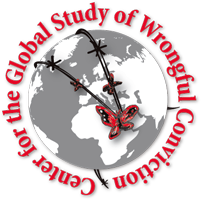History has a unique way of repeating itself. Consider, for example, the question of wrongful conviction in France.The first French association designed to fight wrongful conviction was created in 1787! It was called “Association de Bienfaisance Judiciare (“charity judiciary association”), and was created by M. Boucher d’Argis. The Association both defended the poor in court, and provided them with compensation upon release. The members of the Association were booksellers, printers, nobles, and lawyers, and women were also admitted. The Association alerted the Monarchy about wrongful conviction, so in 1788, King Louis the 16th declared that it is necessary “to prevent wrongful conviction.” And this was one year before the Revolution! So while we in the United States should take great pride in the work that’s been done over the course of these last fifteen years, the French appear to be the first country that I’ve seen where wrongful conviction was officially acknowledged, and by the King no less. It’s not clear how many people were exonerated by the Association, this is a question that I plan to investigate with my French colleagues. The seeds of innocence were planted in France in 1787 and have been germinating ever since.
Project Innocence France, the twenty-first century cousin of the Association de Bienfaisance Judiciare, is preparing to launch. Once established, it will be the first innocence organization in France, and will join the growing number of international member organizations in The Innocence Network.
On Friday, January 11th I was joined by DNA expert, Dr. Greg Hampikian, to deliver a presentation at the Lyon III School of Law on the topic of wrongful conviction and innocence organizations, and the role played by DNA analysis in righting injustice. Dr. Hampikian and I were the guests of Mr. Sylvain Cormier, a criminal defense attorney from Lyon, France and the guiding force behind Project Innocence France. Dr. Hampikian and I presented the work of the Innocence Network to more than 200 people in an overrun law school auditorium (people were turned away). There is clear excitement and intrigue regarding our work, especially from students, but also from faculty and administrators, and the French press. Mr. Cormier has assembled some of the most impressive, important, and diverse justice officials in France to serve on his Board. I met a few of these people, and was introduced to the others by reputation. So far prospective members include forensic experts, retired police, retired judges, law faculty (Lyon III), and attorneys.
As with most law schools in Europe, there is no tradition of clinic work. However, at Lyon there are opportunities for apprenticeships. In addition, a course will need to be created by the law school to explore the subject of wrongful conviction. This may take time, as presently in France there are no required courses in Criminal Law or Criminal Procedure. Students are expected to learn this trade through apprenticeship (The one book that has been written on the topic of criminal procedure was first published in 2000 and is now in its 7th edition. I have made the acquaintance of the book’s author, Francois Saint-Pierre. While I was in Lyon last week, Mr. Saint-Pierre received word that he had just won judgement against France in the European Criminal Court in a homicide case. He is on the IP Board, is a law partner to Mr. Cormier, and is a powerful figure among French criminal lawyers and members of the High Court). Structurally, there are important changes being introduced to the law school by implementation of the innocence project and this is thrilling, promising, and will require patience. The law school Dean threw a reception for us after our conference and was overjoyed with the presentations, and the promise of the work. While I can’t read into the future, I do believe that there is great support and enthusiasm for the project at the law school.
Perhaps most promising and exciting was the response to our work from students at the law school. They understand the significance of innocence work as part of a broader movement for human rights and, at least for those with whom I spoke, they were committing to learn more about prospective involvement with Project Innocence France. While not something that is new to me at this point in my career with The Network, I’m still deeply touched when exposed to the awakening of spirit and commitment in young people.
The struggles confronting the French with regard to wrongful conviction are in large part shared by all jurisdictions regardless of country of origin. Evidence preservation, coerced confession, false eyewitness testimony, and poor defense were repeatedly mentioned. The French are prepared to conduct the necessary research into the causes of wrongful conviction to contribute to the growing international database.


















Reblogged this on 201010blog.
Pingback: International Recognition of Wrongful Convictions: A Growing Trend? | Wrongful Convictions Blog